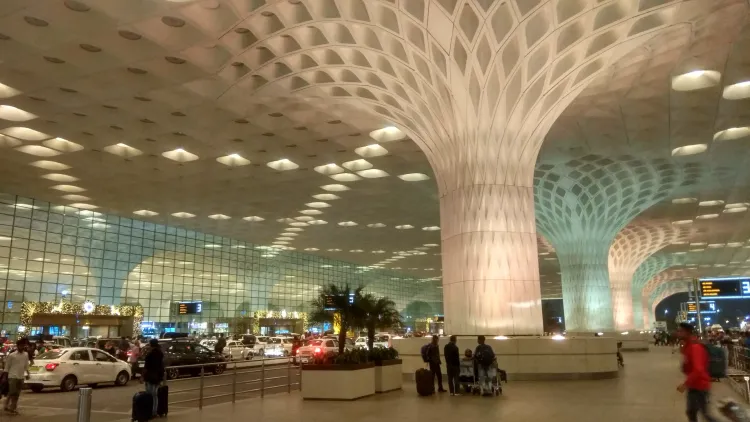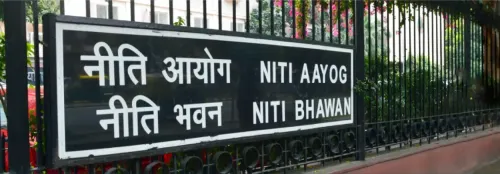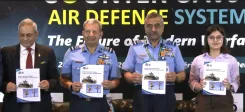MIAL Suggests Tariff Changes at CSMIA to Foster Infrastructure Growth and Enhance Passenger Experience

Synopsis
Key Takeaways
- MIAL proposes a user development fee for domestic and international passengers.
- Significant investments of Rs 10,000 crore planned for infrastructure.
- New tariff structure aims to balance revenue sources.
- CSMIA seeks to enhance passenger experience with various initiatives.
- Focus on sustainability and technological upgrades.
Mumbai, March 18 (NationPress) To facilitate essential infrastructure improvements and enhance the passenger experience, Mumbai International Airport Limited (MIAL) submitted a proposal for a tariff structure revision to the Airport Economic Regulatory Authority (AERA) on Tuesday, marking the first change since 2021.
A subsidiary of Adani Airport Holdings Limited (AAHL) and the operator of the Chhatrapati Shivaji Maharaj International Airport (CSMIA), MIAL has put forth a user development fee (UDF) of Rs 325 for domestic passengers and Rs 650 for international travellers. This initiative aims to fund significant infrastructure and technology enhancement projects at the airport.
In the next five years, the airport is set to invest Rs 10,000 crore into infrastructure development and anticipates generating total revenues of Rs 7,600 crore from an estimated 229 million passengers, as per MIAL.
The proposed tariff structure intends to strategically adjust the revenue mix by increasing the UDF while simultaneously decreasing landing and parking fees by 35 percent.
This proposal is in line with tariff structures at other major Indian airports and is designed to enhance revenue stability and improve overall passenger satisfaction, ensuring that CSMIA continues to be a competitive and appealing aviation hub for travelers.
The current yield per passenger (YPP) at CSMIA is Rs 285. The proposal to AERA seeks to adjust the YPP to around Rs 332, which reflects an 18 percent increase, aligning with the consultation document released by AERA on March 10, 2025.
To date, MIAL has not charged a domestic passenger UDF, yet it has successfully converted 54 conventional vehicles to electric vehicles (EVs), introduced 47 new EVs, and plans to add 60 more. Additionally, it conducts regular pre- and post-monsoon runway maintenance, with significant resurfacing projects for the secondary runway (14/32) in 2024 and runway 09/27 in 2020, and has introduced a pioneering Vertical Axis Wind Turbine & Solar PV System.
MIAL has consistently focused on enhancing passenger comfort, operational efficiency, and the long-term sustainability of one of India’s prominent aviation hubs.
Key initiatives include a domestic-to-domestic transfer facility at T2, new Taxiway Z to improve punctuality and support sustainable airport operations, the implementation of eGates to alleviate congestion at terminal entry points, complimentary inter-terminal coach transfers, and FASTag-enabled parking, among other passenger-centric innovations.
To deliver a cutting-edge airport experience, CSMIA is progressing with various transformative projects such as the redevelopment of Terminal 1, capacity expansion and digitalisation, airside enhancements, smart passenger technology, and sustainability commitments.









